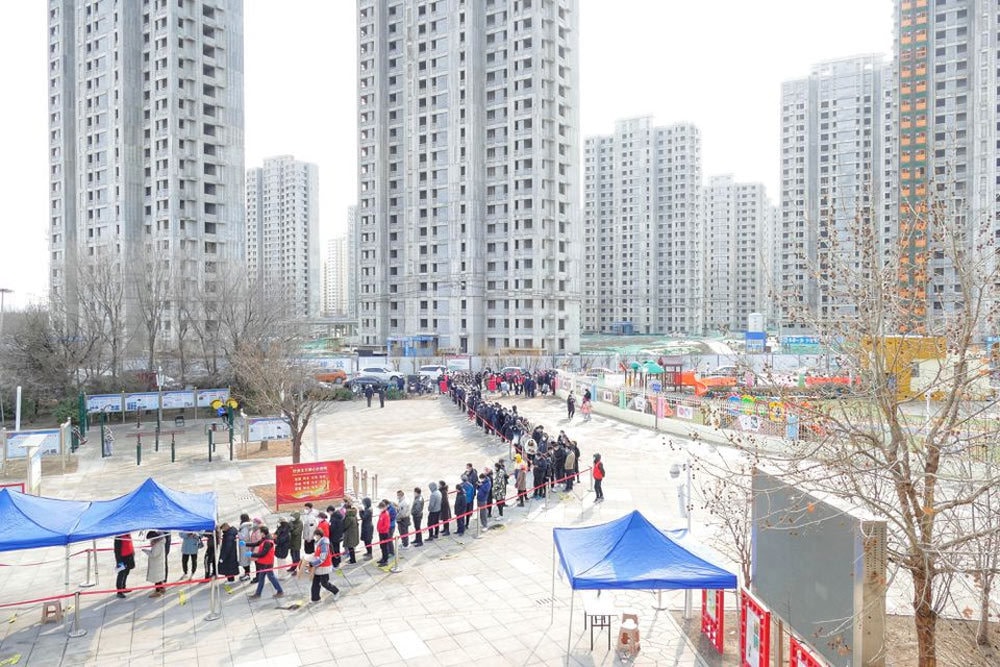US sees record number of Covid-19 hospitalizations; Japan extends ban on foreigners entering the country
In the past 24 hours, the world has had 2.6 million more infections and more than 7,500 deaths from Covid-19.
According to data updated at 6am this morning (January 12) on the global statistics site Worldometers,Covid-19 pandemicThe virus is still raging in 222 countries and territories, infecting a total of 323.7 million people and killing over 5.5 million. The number of recoveries reached 261.5 million cases.
Not only is the US leading in the number of new infections (557,600), it is also leading in the number of new deaths (1,994). The country also recorded a record number of Covid-19 patients hospitalized.
By region, Europe has been hit hardest by Covid-19, with more than 98.5 million cases. Next is Asia with 87.7 million cases, North America with 74 million cases, South America with more than 41 million cases, Africa with about 10 million cases and Oceania with 1.3 million cases.
|
| People line up to get tested for Covid-19 in Tianjin, China. Photo: Reuters |
China does not blockade Beijing
Chinese authorities have said there are no plans to lock down Beijing until after the Winter Olympics and the situation remains under control despite the arrival of Omicron.
Many expressed concern that with just one month left until the global sporting event begins, the epidemic is still raging in several cities, including Tianjin, just 150 km from Beijing.
However, in an online interview with the press, Huang Chun, deputy director of the Beijing Winter Olympics organizing committee, affirmed: "The current situation does not require any change, unless an outbreak affects those in the 'closed bubble'." He added that many experts and medical teams are closely monitoring the Omicron variant.
Malaysian primary school students tested for Covid-19 at home
From this week, the Malaysian government will allow primary school students to test themselves for Covid-19 at home. The schools will be responsible for providing the test kits and those selected for screening will have to submit their results to the school.
It is expected that the Malaysian Ministry of Education will have an official announcement explaining this issue.
According to the Malaysian Ministry of Health’s National Covid-19 Testing Strategy, from 1 December 2021, 10% of primary school students will be randomly selected every week to self-test at school. The self-testing involves using saliva testing kits provided by the Ministry of Education, and must be carried out under the supervision of teachers.
With the new approach, parents will have to ensure that self-testing takes place according to the procedures prescribed by the Ministry of Health, so that classes can take place safely.
Japan extends ban on foreigners entering the country
Japanese Prime Minister Kishida Fumio announced that the country will continue to ban entry to people from abroad who are not citizens or permanent residents until the end of February.
Speaking to the press, Mr. Fumio affirmed that the situation of infection with the Omicron variant in Japan is clearly different from that in other countries. Therefore, the country will continue to maintain current border control measures. Japan will also limit entry to about 3,500 people/day.
In addition, according to Japanese Chief Cabinet Secretary Hirokazu Matsuno, permanent residents who have been to 11 countries, including South Africa, within 14 days are also banned from entering.
The ban on foreigners entering Japan was imposed on November 30 after the first case of the Omicron variant was reported. Initially, the country planned to implement border controls for a month, banning foreigners from entering the country and requiring Japanese citizens and permanent residents to quarantine at government-designated facilities upon their return. Those who were allowed to enter the country were required to take a test within 72 hours of departure and submit a certificate showing a negative result for SARS-CoV-2. They were also required to take a test upon entry and refrain from using public transport in Japan.
However, in the context of the epidemic resurgence in many places around the world, mainly due to the Omicron variant, on December 28, the Japanese Ministry of Foreign Affairs announced that border control measures will "continue to be effective in the coming time".









